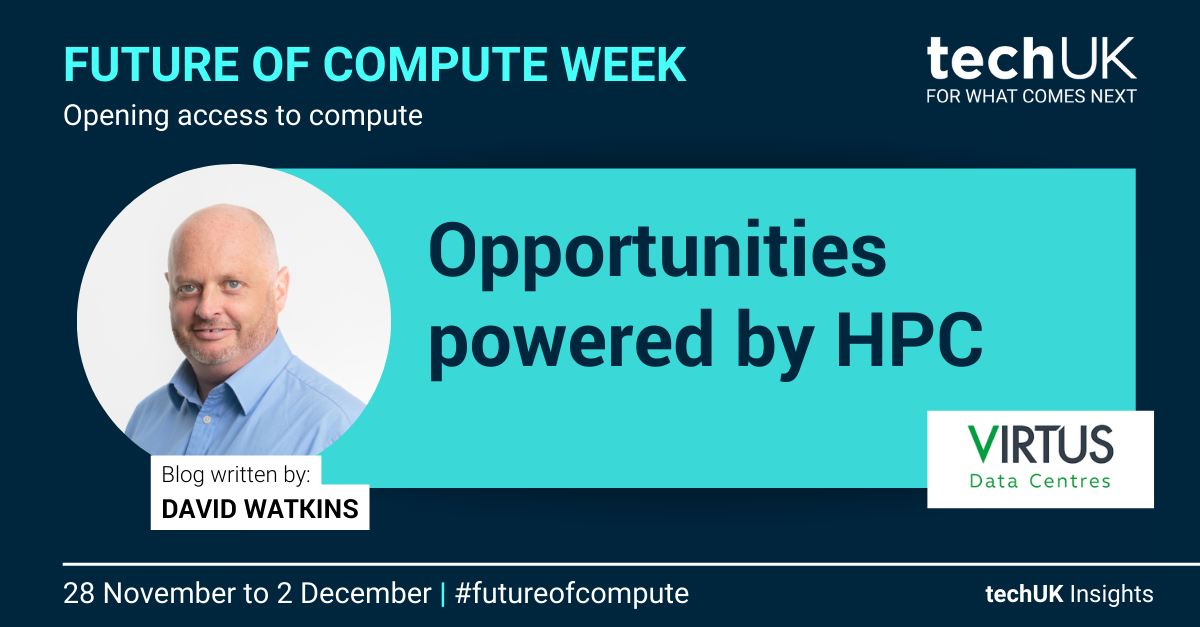Unlocking the power of Data: Opportunities powered by HPC

The Internet of Things (IoT) is everywhere. At home, IoT is touching every aspect of our daily lives – from connected hubs to smart thermostats, remote door locks and video doorbells. And at work, IoT has become vital too - managing the connections, devices and applications that underpin organisations in all sectors.
As we know, alongside any digital technology comes plenty of data, and data from IoT technologies has the potential to generate invaluable insight - helping improve products, services, efficiencies and ultimately, revenues.
It’s an exciting time for businesses who know that if they’re able to unlock the power of data, they are able to enjoy significant benefits. However, for many, the possibilities are limited by issues of complexity and capacity.
The truth is that the benefits of IoT and big data will only come to fruition if businesses can run analytics that – with the growth of data – have become too complex and time critical for many enterprise servers to handle efficiently.
The answer: high-performance computing (HPC) and a data centre partner who can really deliver.
The HPC and data centre story
Simply put, HPC is the aggregation of computing power, delivering far higher levels of performance than could be expected from a standard desktop or server. Standard compute deployments are often not capable of delivering the level of compute power provided by HPC due to restrictions on CPU capacity, time (processing is too slow for the task) or the ability to run complex models concurrently.
Once the domain of academia, HPC is quickly becoming vital component in enabling organisations of varying sizes to reap the benefits of being able to quickly capture, process and analyse big data.
However, due to the high power and cooling requirements of HPC, modern data centres are often the only facilities that can provide a suitable environment; trying to accommodate HPC within a commercial building can be challenging.
HPC presents challenges for data centres too, which are quickly evolving in response. For example, HPC deployments typically consume more energy than standard compute deployments, and the higher power levels needed can require different cooling techniques, such as delivering water cooling to the actual hardware from the building cooling systems, rather than cooling via air as is the norm for standard servers.
Because HPC deployments are typically deployed for a specific purpose, supplementary servers are also required to provide things like storage of data, network connectivity for remote access and sharing of outputs. Any data centres supporting HPC will require strengthened floors to support the additional weight of the HPC servers which are very dense (often weighing over 3000kg) and be able to accommodate both air and liquid cooling alongside one another.
Many data centres will claim to support HPC – and technically speaking, a lot of them will – but only data centres that have been built from the ground up with HPC in mind will be able to do so cost-effectively.
Choosing the right partner
This all means that an organisation’s data centre partner is more important than ever. And, it’s important to conduct due diligence before signing up with a provider in order to avoid the risk of being tied into costly long-term contracts that neither meets current or future needs.
Ultimately, businesses must ensure their IT systems and infrastructure are able to deal with these new requirements. To succeed, they must be laser focused on their data centre strategy. Choosing a partner that is capable of dealing with the next generation of computing and performance needs is vital, not only to remain not only competitive today, but also to power future growth.

Rory Daniels
Rory joined techUK in June 2023 after three years in the Civil Service on its Fast Stream leadership development programme.

Ella Shuter
Ella joined techUK in July 2025 as Junior Programme Manager for Emerging Technologies.

Laura Foster
Laura is techUK’s Associate Director for Technology and Innovation.

Elis Thomas
Elis joined techUK in December 2023 as a Programme Manager for Tech and Innovation, focusing on Semiconductors and Digital ID.


